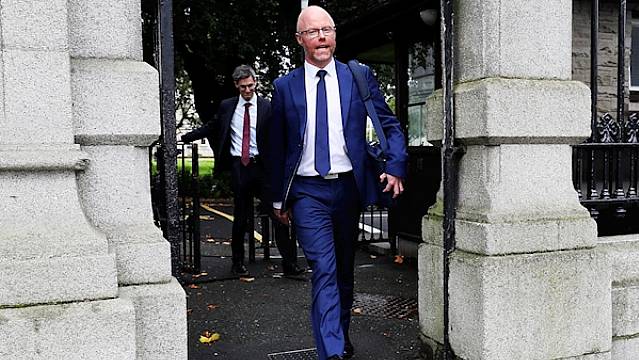The State is currently facing “unenviable choices” that would “never have arisen” if there had been sufficient investment in health services over time, the organisation’s virtual annual conference heard this morning.
The Government must now “relent on repeated resistance to obvious remedies,” learn from the crisis and recognise the key to capacity is increasing hospital beds and staff, according to IHCA President, Professor Alan Irvine.
Time and again, the problems we and others highlighted in our health system were long-fingered. As a result, our health service has been backed into a corner and the consequences are hitting people hard.
“Our leaders in government are making and facing unenviable choices which increasingly involve trade-offs, in particular between living and livelihoods. I am firmly of the view that these choices would never have arisen, at least at such scale, if we had sufficiently invested in our health services over time,” Prof Irvine said.
“Time and again, the problems we and others highlighted in our health system were long-fingered. As a result, our health service has been backed into a corner and the consequences are hitting people hard."
Prof Irvine said core problems currently facing the country’s health service could be fixed with relatively minimal investments: “Report after report has found the key to capacity is people and beds.
“We are spending more than ever before on a Winter Plan while borrowing €20 billion and counting to meet the cost of the crisis. Yet in budgetary terms, for some 6 per cent of the Winter Plan budget and 0.15 per cent of current Covid-19 related borrowings we could fix the core problem of vacant permanent consultant posts.
“The immediate benefits this would have on patient care and waiting lists would also extend to other cost savings.”
Intensive care
The Irish Hospital Consultants Association has asked for an extra 2,000 hospital beds to open over the next few months.
Prof Irvine called for transparency in the delivery of acute and intensive care beds, and suggested the introduction of a live dashboard on bed numbers that could “bring both transparency and greater understanding.”
We recognise delivering bed capacity can be complex. We know it is not a simple case of calling Mattress Mick.
“We recognise delivering bed capacity can be complex. We know it is not a simple case of calling Mattress Mick,” he said. “But capacity at greater speed has been done before and a solution anchored in transparency would bring a new dynamic to this age-old challenge.”
Prof Irvine said the Government has been aware of the need for more intensive care beds for more than a decade: “As far ago as 2009, the State identified that we should have 589 intensive care beds and we started this Covid crisis in January with 220, so we actually went back from 2009.
“Slowly, we’re building up capacity again and today as we speak we have 280, 281 ICU beds available, we’d like to see that get to 400 very quickly, we’d like the capacity to ramp up.”
Commending elements of the response to the crisis, Prof Irvine said credit was due to Minister for Health Stephen Donnelly and HSE chief Paul Reid on the “rarity” of the publication of a Winter Plan for the healthcare service before winter.
Speakers at the virtual conference include the Minister for Health, Mr Reid and various healthcare experts.







